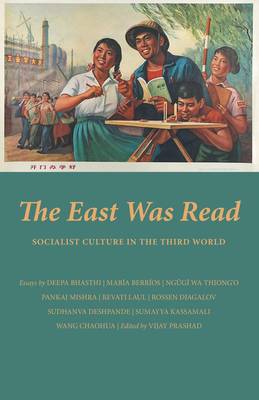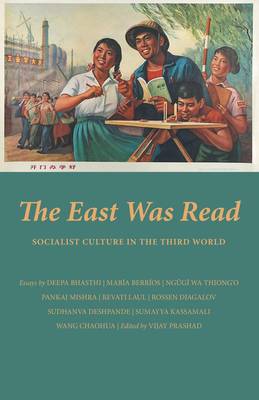
- Retrait gratuit dans votre magasin Club
- 7.000.000 titres dans notre catalogue
- Payer en toute sécurité
- Toujours un magasin près de chez vous
- Retrait gratuit dans votre magasin Club
- 7.000.0000 titres dans notre catalogue
- Payer en toute sécurité
- Toujours un magasin près de chez vous
21,95 €
+ 43 points
Description
Across the Third World, people grew up reading inexpensive, beautifully-produced books from the Soviet Union - children's books, classics of world literature, books on science and mathematics, and works of Marxist theory. The first half of The East Was Read is an homage to the lost world Soviet books. Wang Chaohua and Pankaj Mishra recall with fondness the meaning of these books for their very different lives in China and in India respectively. Deepa Bhasthi goes on an emotional journey into the library of her grandfather, a communist intellectual. Rossen Djagalov writes a short history of Progress Publishers. Ngũgĩ wa Thiong'o talks about how he wrote Petals of Blood in Yalta on the sidelines of the Afro-Asian Writers' Association in 1973. Sumayya Kassamali writes about Faiz in Beirut, giving us a sense of the cultural worlds that drew in both the Soviet Union and the Third World Project. The second half of the book pivots from the page to the stage. Maria Berrios brings an artist's eye to the cultural world of socialist Cuba. Sudhanva Deshpande identifies a momentum in socialist cinema, from the early Soviet period to the early Cuban period. Revati Laul reminds us that watching a Soviet ballet or reading a Soviet book can have an impact in other times and other histories. The East Was Read is a treasure trove of sparkling essays on the impacts of socialist culture in various parts of the Third World. This is a must-have book for bibliophiles, cinephiles, for lovers of reading, watching, listening.
Spécifications
Parties prenantes
- Auteur(s) :
- Editeur:
Contenu
- Nombre de pages :
- 154
- Langue:
- Anglais
Caractéristiques
- EAN:
- 9788193466629
- Date de parution :
- 01-01-20
- Format:
- Livre broché
- Format numérique:
- Trade paperback (VS)
- Dimensions :
- 140 mm x 216 mm
- Poids :
- 185 g

Les avis
Nous publions uniquement les avis qui respectent les conditions requises. Consultez nos conditions pour les avis.






